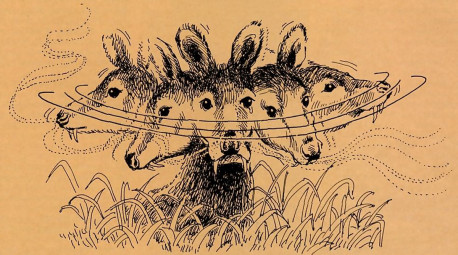A lesson in pleasure seeking.
by Satyaraja dasa
The search for happiness is natural, because it is the constitutional position of the spirit soul to be eternally joyful. But our search for happiness in the external, physical world is always frustrated; we look everywhere, never realizing permanent pleasure.
The musk deer, an animal native to Central Asia, gives us a hint to the solution of this predicament. The musk deer is famous for the scent produced from a glandular sac beneath the skin of the male’s abdomen. Not only is the reddish-brown secretion from this sac much sought after by human beings, who use it as a base for many perfumes, but according to the Vedic tradition, the musk deer himself sometimes goes mad over the powerful fragrance. In his madness he runs wildly about, looking everywhere for the intense scent. Everywhere, that is, except within himself.
Are you about to hear some facile pronouncement about “the happiness within”? Well, yes and no. Yes, the devotees of Krsna will tell you that by serving Krsna one feels happiness within—happiness independent of the fleeting pains and pleasures of the physical body. No, their statement is not facile; it is based on experience, and on a realized understanding of our spiritual identity.
Every living entity is a spirit soul—part and parcel of the Supreme Soul, Krsna—and entitled to the unlimited spiritual pleasure derived from satisfying Krsna’s transcendental senses. The temporary physical body is only a covering over the soul, just as a shirt or coat is only a covering over the body. In comparison to even a drop of the transcendental happiness of serving Lord Krsna, the greatest pleasures of the physical world appear meager.
We just instinctively follow the “scent” of happiness, but if that scent leads us to gratify our bodily senses, rather than to serve and please Lord Krsna, we have been fooled. Like the musk deer, we’ll search vainly in the external world, never experiencing the happiness within.


Leave a Reply